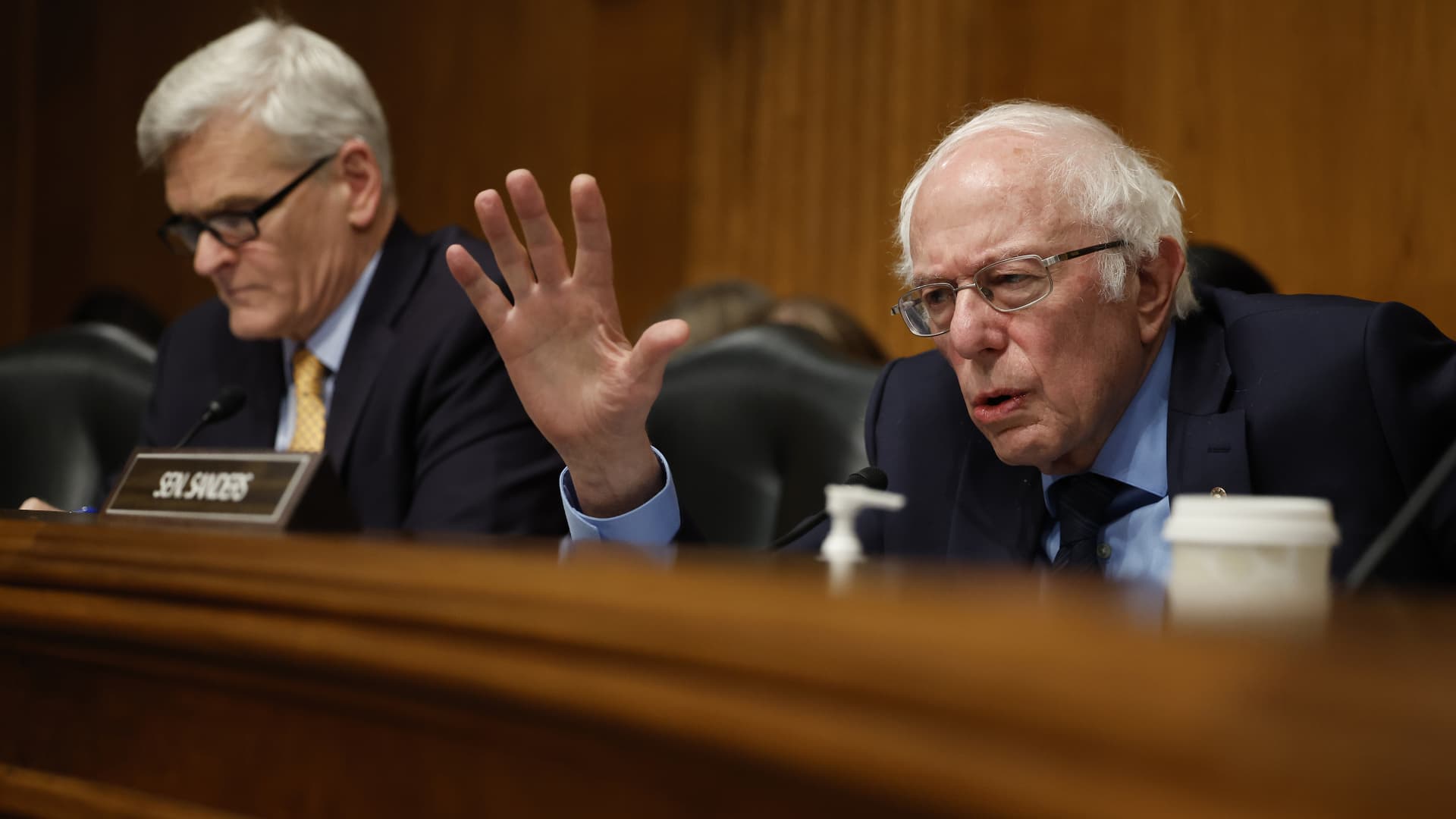In a major reversal, the House on Friday passed a two-year reauthorization of an expiring warrantless surveillance law that stalled this week amid Republican opposition stoked by former President Donald J. Trump.
The bill would extend a provision known as Section 702 of the Foreign Intelligence Surveillance Act (FISA), which is set to expire next Friday. Passage in the House was a remarkable revival of the measure after a collapse in the House just days ago after Mr. Trump urged lawmakers to “kill” FISA.
But that came after lawmakers narrowly defeated a bipartisan effort to limit searches of Americans’ messages collected by the program – a major change that national security officials had warned would undermine the law. The vote reflected widespread skepticism about the program.
To save the measure from expiration, Speaker Mike Johnson proposed a shorter extension than the original five years, convincing far-right Republicans who had blocked the bill to advance it. The final vote was 273 votes to 147, with both parties divided. One hundred and twenty-six Republicans joined 147 Democrats in favor, while 88 Republicans and 59 Democrats opposed.
The bill still needs to be approved by the Senate and signed by President Biden. But the main obstacle lay in the House, where Republicans are deeply divided and Mr. Johnson had tried three times to pass it but failed.
Until almost the last minute on Friday, it was unclear what the final bill would look like, as the House considered a series of proposed amendments that various members said would determine their positions. Most prominently, in a heated vote, lawmakers narrowly defeated a proposal to ban FBI agents and intelligence analysts from using Americans’ identifiers – such as email addresses – to query the program’s repository of messages , unless those officers have previously obtained arrest warrants.
In an extraordinary moment in the House, the proposal to add a warrant requirement failed on a tied vote – 212 to 212, with 13 members not voting and Mr Johnson breaking custom and casting a decisive “no” vote. The amendment split the two parties: 126 Democrats and 86 Republicans voted against it, while 128 Republicans and 84 Democrats voted for it.
Civil liberties advocates have long sought such a restriction to protect Americans’ privacy. But national security officials have argued that doing so would cripple the program because they typically use it early in investigations, such as when trying to learn more about a phone number or email account that has previously been found to be that they were in contact with a suspected foreign spy or terrorist There is enough evidence to meet the probable cause standard for an arrest warrant.
National security hawks had skillfully thwarted the warrant proposal in previous years, but this time it gained momentum as civil rights progressives were joined by right-wing Republicans who aligned themselves with Mr. Trump’s hostility to the FBI and intelligence agencies.
Supporters of the no-knock warrant requirement were led by senior members of the Judiciary Committee, including its chairman, Rep. Jim Jordan, a Republican from Ohio, and its ranking Democrat, Rep. Jerrold Nadler of New York. She and her allies argued Friday that this change is critical to protecting Americans’ constitutional rights.
“Searching for Americans’ private messages in the 702 database — messages that the government would otherwise not have access to without a warrant — is the constitutional equivalent of a search without a warrant,” Mr. Nadler said.
Opposition to the warrant change was driven by members of the Intelligence Committee, including its leaders, Representatives Michael R. Turner of Ohio, the Republican chairman, and Jim Himes of Connecticut, its top Democrat. They argued that introducing a warrant requirement would effectively blind security officers to potentially important information they already had.
The House of Representatives made several other important changes to the bill. These included permission to use the Section 702 program to collect information on foreign drug trafficking organizations and to screen potential foreign visitors to the United States; Authorizing certain congressional leaders to observe secret hearings of a court that oversees national security surveillance; and expanding the types of companies with access to foreign communications that may be required to participate in the program.
Privacy advocates expressed disappointment that the House expanded the program, but rejected their long-held goal of establishing a warrant requirement.
“It’s painful to come so close and still be without these basic protections for Americans’ rights,” said Elizabeth Goitein of the Brennan Center for Justice at New York University School of Law. “But the close vote gives hope to civil rights advocates. This is just a two-year reauthorization, and if passed, we can build on this momentum in future votes.”
Such political battles over the measure have been overshadowed in recent days by a political uproar sparked by Mr. Trump. This week, he told lawmakers to “kill FISA” in a social media post, claiming it was used to illegally spy on his 2016 presidential campaign.
Mr. Trump’s claim was incoherent from a legal and policy perspective because there are two types of FISA surveillance and the type being phased out – Section 702 – has nothing to do with the type used by the FBI in its investigation into connections between his campaign and Russia amid Moscow’s covert efforts to help him win the 2016 election.
Wiretaps for national security investigations targeting Americans or people on domestic soil are subject to the traditional style of FISA, which requires arrest warrants; An inspector general found that the FBI botched its warrant requests to wiretap a former Trump campaign adviser during the Russia investigation. This type of FISA, created by Congress in 1978, is not expiring.
In contrast, Section 702 allows the government to use U.S. companies like AT&T and Google to collect the messages of foreign nationals abroad who have been targeted for foreign intelligence or counterterrorism purposes without a warrant — even if they are communicating with Americans . It legalized a form of unauthorized wiretapping program that former President George W. Bush secretly launched after the Sept. 11, 2001, terrorist attacks.
Still, Mr. Trump retains significant political influence over Republicans in Congress, and following his broadside, 19 House Republicans, mostly allied with the ultra-conservative House Freedom Caucus, voted on Wednesday to block consideration of the bill, sending politicians back to power Drawing board sent.
Mr Johnson’s decision to shorten the bill from five years to two meant that if Mr Trump won the 2024 election, he would control the White House come renewal time. It allowed far-right Republican defectors to claim victory while pushing the issue forward, and all 19 of them switched positions Friday and voted to bring the bill up.
It remains to be seen whether the Senate will pass the bill before Section 702 expires next Friday. But that’s a soft deadline: The program can continue until April 2025 because the FISA court last week approved a government request authorizing it for another year. Under the law, surveillance activities can continue as long as there are active court orders allowing it, even if the underlying scheme expires.
Still, the intelligence community has called on Congress to reauthorize the program before it ends up in such legal limbo. This raises the possibility that providers may resist further collaboration and creates gaps in collection until any legal disputes over the issue can be resolved.
While the bill does not include the warrant requirement long sought by privacy advocates, it does impose many new restrictions on how the FBI can search for Americans’ information in the archive of communications collected under the program.
There are restrictions on the search and use of this material, but the office has repeatedly violated those restrictions in recent years – including unlawfully seeking information about Black Lives Matter protesters and people suspected of rioting on March 6. January 2021 for having participated in the Capitol insurrection.
The FBI has since tightened its system to reduce the risk of queries that violate standards. This bill would codify these changes and add reporting requirements and limit the number of officials who have access to the archive of raw information.
Kayla Guo contributed reporting.
Source link
2024-04-12 20:51:03
www.nytimes.com















